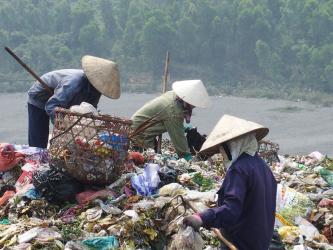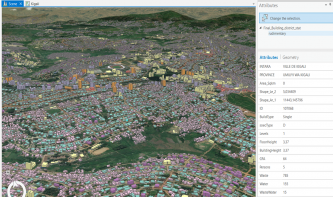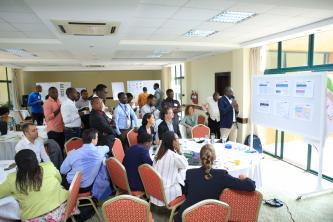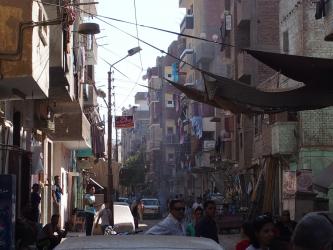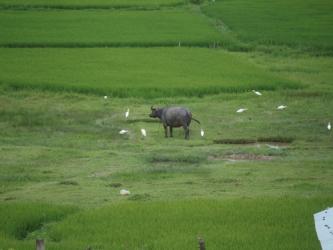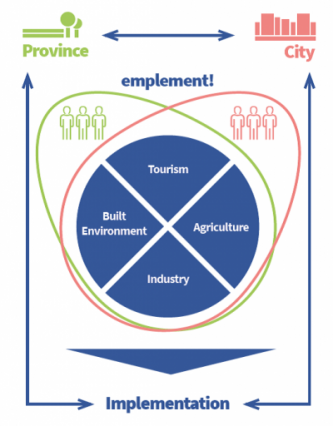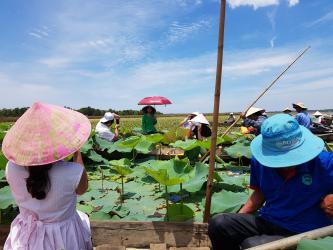 enEnglisch
enEnglischCurrent projects
Rapid Planning



Rapid Planning: Sustainable infrastructure, environmental and resource management for high dynamic metropolises
Rapid Planning is an action-oriented joint research project of the Federal Ministry of Education and Research (BMBF), which was developed on the basis of the results of the "Future Megacities Research Program" funded by the BMBF and supported by the DLR project management organisation. The project has been running since April 2014; most of the project partners are expected to complete their work by end of 2019. AT-Verband is responsible for coordinating the joint project.
The main
objective of Rapid Planning is to develop a comprehensive methodology that
allows urban infrastructure planning to be rapidly adapted to the needs of a fast
growing population. The project focuses on supply and disposal infrastructure,
in particular water, wastewater, energy, waste, and urban agriculture. The
method is to be developed and tested in the three project cities Da Nang
(Vietnam), Kigali (Rwanda) and Assiut (Egypt) together with the local project
partners.
The project cities were selected in order to take into account the needs and characteristics of different regions and cultures in method development. A toolkit of instruments, methods and guidelines developed within the project will be made available to cities worldwide. It includes methods for rapid data collection, calculation tables and simulation programs, information on adapted technologies for supply and disposal infrastructure, and methods for stakeholder empowerment. Key aspects of Rapid Planning are the identification and exploitation of potential planning synergies for the considered sectors water, wastewater, energy, waste and urban agriculture. The aim is to achieve mutually reinforcing solutions that are both cost-efficient and energy- and resource-saving.
The Rapid Planning toolkit can be used for different tasks and in different urban contexts, e.g. urban expansion planning, densification, city-wide planning or planning for the urban-rural area. Roadmaps and guidelines provide detailed application information for different planning phases from conception to implementation and monitoring.
emplement!



emplement! Empowering urban regions for cooperative, synergistic and practical implementation of sustainability and resilience strategies considering the urban-rural nexus
emplement!
is a joint R&D project within the framework of the "Sustainable
Development of Urban Regions" programme, which is funded by the BMBF and
supported by the DLR project management organisation. Within the framework of
the overarching objective "sustainable urban regions", projects are
to be promoted which serve to increase the "resilience of cities, their
environs and urban regions". After a 6-month preparation phase and an 18-month definition phase, the
project has entered a 4-year R&D phase (01.06.2021 -
31.05.2025). The project is coordinated by AT-Verband.
Rapid urbanization poses major challenges for cities and their environs - not only due to the increasing consumption of resources and the related consequences, but also due to climate change and the associated negative effects. Strategies and plans to address these challenges not only have to be developed, but also need to be implemented in practice.
The aim of
emplement! is to develop transferable instruments and the necessary capacities
to enable involved actors in the Vietnamese city of Da Nang and the
neighbouring province of Quang Nam to transfer sustainability and resilience
strategies and plans into practical and synergetic measures. Thereby the city
and province are not considered separately, but with special attention to their
systemic interdependencies. The tools are developed at three different
levels:
- System level (strategies, plans, general framework; methods of data generation
- Technology level (appropriate
technologies, decision support);
- Implementation level (identification of obstacles, showcases, research for implementation).
In view of the economic importance for Da Nang and Quang Nam and their direct competition for resources such as water, energy or land, but also the great synergy potential, emplement! concentrates on the following four fields of action:
Tourism
Agriculture
Industry
Built environment
STIK

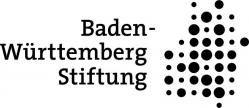
STIK - Orchard meadows in climate change: Transformation towards resilient cultural landscape management
Duration: 01.07.2021-30.06.2024
Funding by the Baden-Württemberg Foundation
STIK is a joint project with project partners from the Geoinformatics/ GIS research department of the University of Tübingen, the Department of Landscape Ecology and Vegetation Science of the University of Hohenheim and the AT-Verband, which is coordinating the project.
The objective of this
project is to make orchard management fit for the challenges of climate change.
Climate change, with its potential effects on temperature, solar radiation
intensity, (soil) water balance and possible threats from invasive species and
pests, will also increasingly leave its impact on orchard meadows in the
future.
The socio-ecological system of orchard meadows is already suffering from economic, administrative, social-societal problems.
Keywords are the ageing of the orchard stands and managers, lack of interest in use and expertise, problematic ownership structures and coordination problems in the transfer between generations, the lack of a solid data basis, poor economic efficiency, insufficient regional cooperation and disinterest on the part of marketers.
STIK addresses these problems with different scientific approaches. For example, the project is establishing the basis for estimating climate-related impacts on orchard sites (data collection and vulnerability analysis) and developing options for possible adaptation measures. In addition, a material-flow based planning basis for sound management and utilisation models is being established.
For the various project activities, not only the scientific partners but also the different orchard stakeholders will be involved from the very beginning. In addition, the young generation, who are supposed to take over and continue the management and preservation of this cultural asset in the future, are explicitly addressed and introduced to the topic of orchard meadows in a practical way, for example through school activities and youth work.




